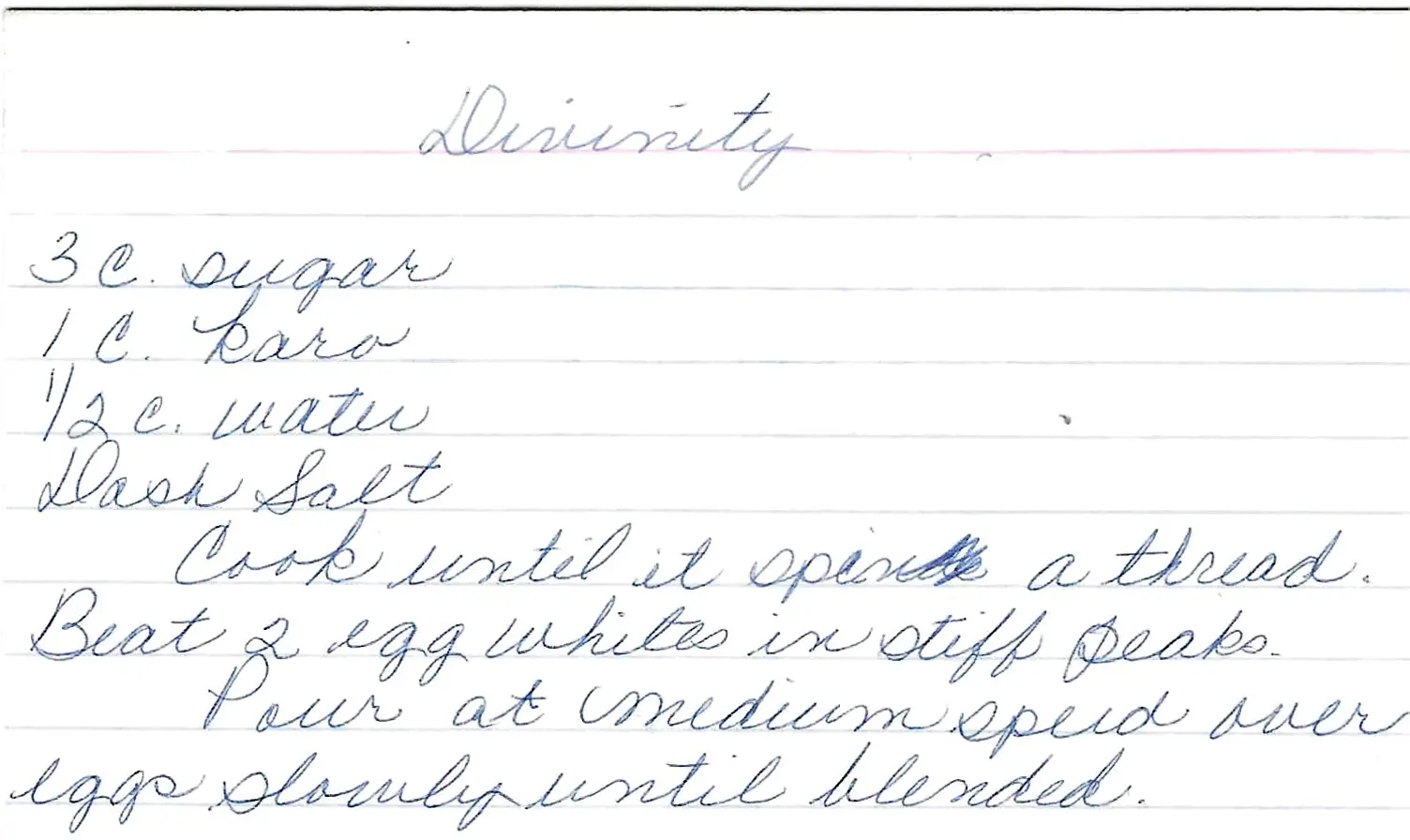A classic recipe for Divinity, a light, fluffy, melt-in-your-mouth confection. This traditional candy is made by pouring a hot sugar syrup into stiffly beaten egg whites and beating until it loses its gloss and holds its shape.
Author
Unknown
Recipe
| Measurements | Ingredients |
|---|---|
| 3 cups | Sugar |
| 1 cup | Karo Syrup (Light Corn Syrup) |
| 1/2 cup | Water |
| Dash | Salt |
| 2 | Egg Whites |
| 1 teaspoon | Vanilla |
| 1 cup | Nuts, chopped (optional) |
Instructions
- Preparation: Line two large baking sheets with waxed paper. It is best to make divinity on a dry, low-humidity day.
- Cook the Syrup: In a heavy-bottomed 3-quart saucepan, combine the sugar, corn syrup, water, and salt. Cook over medium heat, stirring constantly until the sugar is completely dissolved.
- Once the sugar is dissolved, stop stirring. Attach a candy thermometer and continue to boil the mixture, without stirring, until it reaches the hard-ball stage (250°F to 260°F).
- Whip the Egg Whites: While the syrup is cooking, beat the egg whites in a large, heatproof bowl (the bowl of a stand mixer is ideal) on high speed until stiff peaks form.
- Combine: Once the syrup reaches the correct temperature, remove it from the heat. With your mixer still on high speed, very slowly pour the hot syrup in a thin, steady stream into the beaten egg whites.
- Continue beating on high speed until the candy becomes very thick, stiff, and starts to lose its glossy sheen. This can take anywhere from 5 to 10 minutes.
- Finish: Quickly stir in the vanilla and the chopped nuts by hand.
- Working quickly, drop the divinity by teaspoonfuls onto the prepared waxed paper. Let the pieces stand at room temperature until completely firm.
Warning
Boiling sugar is extremely hot and can cause severe burns. Use extreme caution when pouring the hot syrup into the egg whites.
Note
The original recipe’s instruction to “cook until it spins a thread” refers to a much lower temperature (230-235°F) which is not hot enough for modern divinity to set properly. The hard-ball stage temperature (250-260°F) is crucial for a successful batch.

.webp)